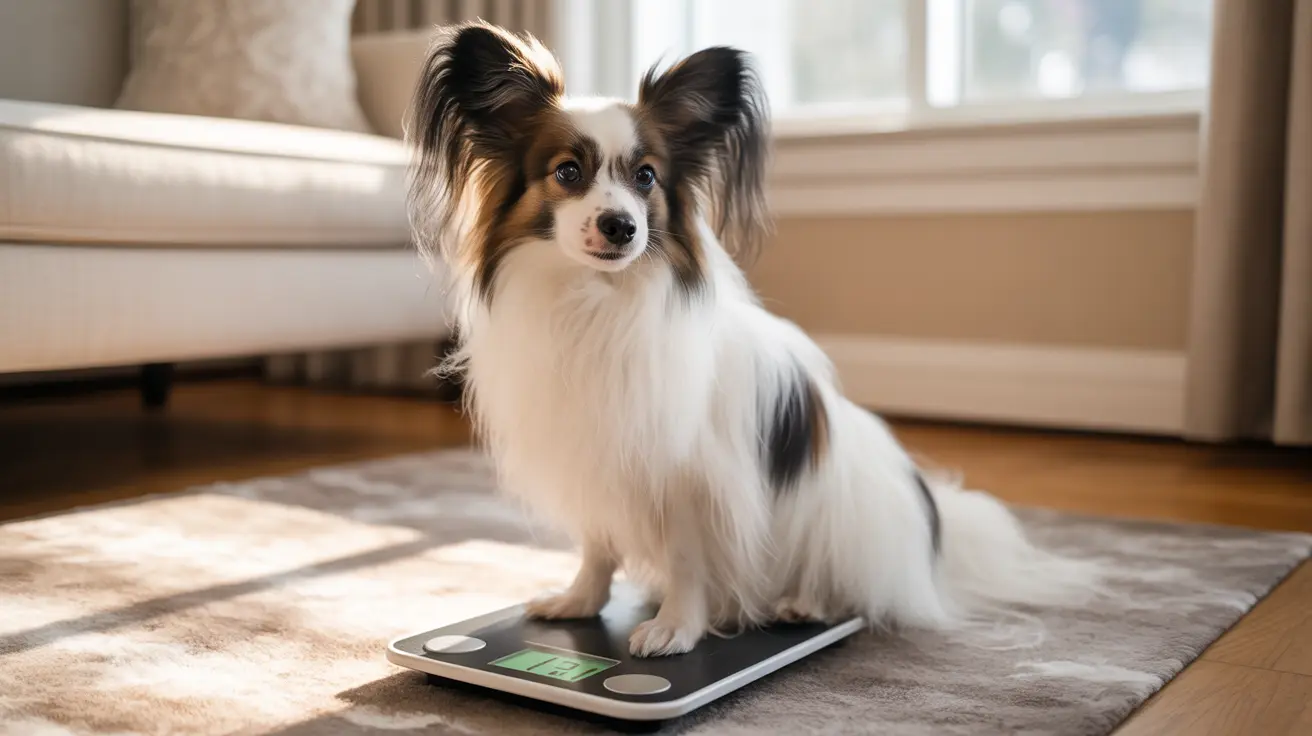Introduction
Understanding how much Papillons weigh is crucial for ensuring your butterfly-eared companion maintains optimal health throughout their life. These elegant toy dogs may be small in stature, but their weight management needs careful attention to support their active lifestyle and prevent health issues.
In this comprehensive guide, we'll explore typical Papillon weight ranges from puppyhood to adulthood, helping you understand what to expect as your pet grows and how to maintain their ideal weight for a healthy, happy life.
Adult Papillon Weight Range
Adult Papillons typically weigh between 5 to 10 pounds (2.3 to 4.5 kg) when fully grown. Males usually fall on the heavier end of this range, while females tend to be slightly lighter. This compact size makes them ideal for various living situations, from apartments to larger homes.
Papillon Puppy Weight Development
Papillon puppies follow a relatively rapid growth pattern typical of toy breeds. Here's what to expect at different stages:
- Birth to 2 weeks: 1-3 ounces
- 3-6 weeks: 3 ounces to 2 pounds
- 2-3 months: 1.5-4.4 pounds
- 6 months: 3.8-7.9 pounds
- 12 months: Final adult weight (5-10 pounds)
Factors Affecting Papillon Weight
Several key factors influence your Papillon's weight:
Genetics
Parental size strongly determines your Papillon's ultimate weight range. Puppies from larger parents typically grow to be larger adults.
Gender Differences
Male Papillons generally weigh about 1-2 pounds more than females at maturity, though individual variations exist.
Diet and Exercise
Proper nutrition and regular activity are essential for maintaining healthy weight. Papillons typically need 1/4 to 1/2 cup of high-quality dog food daily, divided into two meals.
Maintaining Healthy Weight
To ensure your Papillon maintains a healthy weight:
- Monitor food portions carefully
- Provide regular exercise through daily walks and play sessions
- Conduct weekly weight checks during growth periods
- Limit treats to 10% of daily caloric intake
- Adjust food amounts based on activity level
Health Considerations
Weight management is crucial for preventing common health issues in Papillons:
- Obesity can stress their delicate joints
- Underweight puppies risk hypoglycemia
- Regular weight monitoring helps detect health issues early
- Maintaining ideal weight supports joint health and mobility
Frequently Asked Questions
How much do Papillon dogs typically weigh when they are fully grown?
Adult Papillons typically weigh between 5 to 10 pounds (2.3 to 4.5 kg) when fully grown, with males usually being slightly heavier than females.
What is the average growth rate of a Papillon puppy, and when do they reach their full size?
Papillon puppies reach their full size by 9-12 months of age, with most rapid growth occurring in the first 6 months. They typically achieve their adult weight by 12 months, though some may continue filling out until 18 months.
How does gender affect the weight of Papillon dogs—are males generally heavier than females?
Yes, male Papillons are generally heavier than females. Males typically weigh 7-10 pounds, while females usually range from 5-8 pounds at maturity.
What factors can influence the weight of a Papillon, and how can owners ensure their dog maintains a healthy weight?
Key factors include genetics, diet, exercise, and overall health. Owners should monitor food portions, provide regular exercise, and conduct routine weight checks while working closely with their veterinarian.
How often should I feed my Papillon puppy, and what are some tips for managing their nutritional needs to support healthy growth?
Papillon puppies should be fed 3-4 small meals daily until 6 months of age, then transition to twice-daily feeding. Use high-quality puppy food appropriate for toy breeds and measure portions carefully to prevent over or underfeeding.
Conclusion
Understanding how much Papillons weigh at different life stages helps ensure proper growth and development. Regular monitoring, appropriate nutrition, and exercise are key to maintaining your Papillon's ideal weight throughout their life. When in doubt about your dog's weight, always consult with your veterinarian for personalized guidance.






